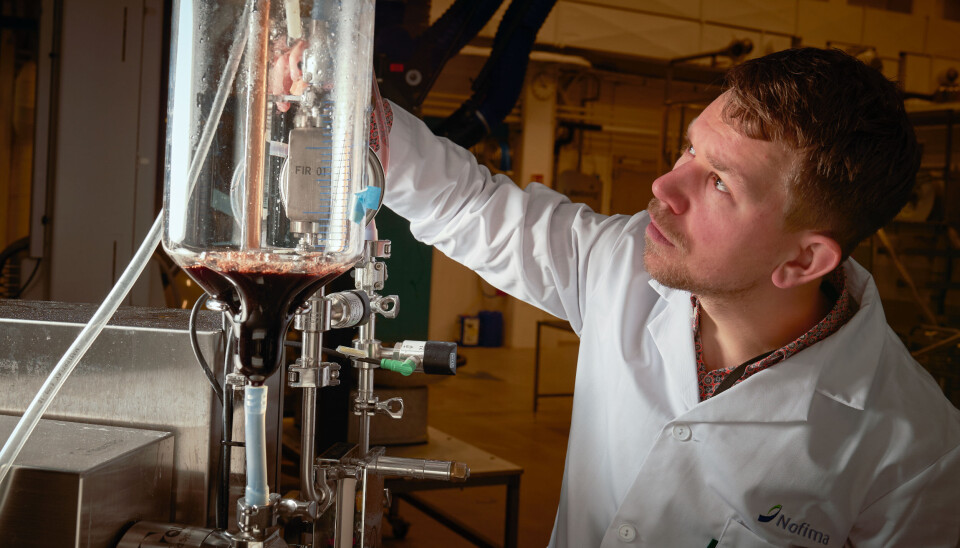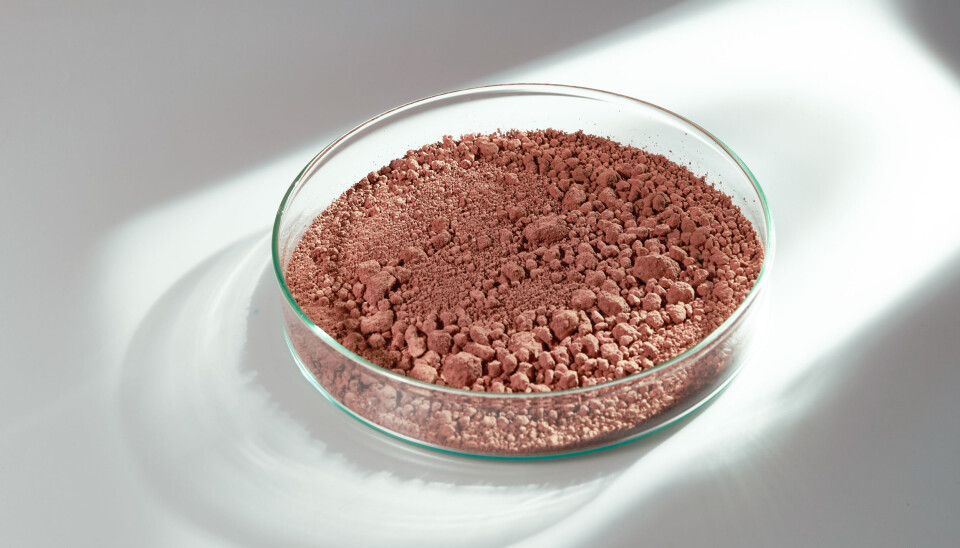This article was produced and financed by Nofima The Norwegian Institute of Food, Fisheries and Aquaculture Research - read more

Salmon blood can help against anaemia
A unique iron powder from salmon blood is more easily absorbed by the human body than iron salts. This may turn out to be a better option for patients with anaemia.
When Norwegian salmon is shipped from the slaughterhouses to eventually reach dinner plates all over the world, the salmon slaughterhouses are left with huge amounts of salmon blood.
An entire 36,000 tonnes of salmon blood is discarded annually – it is in fact the only part of the salmon which is currently not utilised.
Anaemia – a global problem
At the same time, anaemia is a widespread problem globally.
According to the WHO, as many as 800 million women and children around the world are affected, making anaemia one of the most common deficiency conditions – but also one of the most difficult to treat.
WHO estimates that around half of all anaemia cases are caused by iron deficiency.
A number of other patient groups are also recommended to take iron supplements. But even if iron is ubiquitous around us, it’s not necessarily easily replenished in our bodies. Humans require iron that is biologically available; that is, in a form that the body can absorb.
Iron adapted to the human body
The most commonly used ferrous molecule used in iron supplements is haemoglobin. Haemoglobin in iron supplements is usually extracted from pigs and livestock. Iron salts from plants are also used in supplements, but are not as easily absorbed by the body. However, the haemoglobin in salmon blood is also biologically available, and should therefore most likely be well suited for the human body.
“We wanted to investigate whether we could extract haemoglobin from the salmon blood in order to use it in iron supplements”, says Research Director Ragnhild Dragøy at Nofima.
Along with colleagues from the Nofima department of marine biotechnology, Norinnova, and participants from the University of Tromsø, she has tested various methods for utilizing the blood from the salmon slaughterhouses.

Unique product
And the researchers' experiments yielded results.
The promising experiments from the laboratory were passed on to Biotep – the National Facility for Marine Bioprocessing, where the process was scaled up on par with industrial production, as well as to a pilot facility that Catapult Life Science disposed of at Fornebu. Using these new methods, scientists have managed to manufacture an iron powder that is the only one of its kind.
The blood powder has been tested on humans at a small scale with very promising results, and more comprehensive clinical testing is being set up in the future.
Sustainable alternative
The main advantage of this iron supplement is that it may be used by many different consumers. As some vegetarians and certain religious groups do not wish to consume iron supplements containing haemoglobin from land animals, a salmon-based supplement might provide a better alternative than supplements based on iron salts.
This creates opportunities to generate profits and reduce costs among salmon producers. Today, the slaughterhouses have to bear the cost of disinfecting and disposing of the blood, which can be a source of contamination in the ocean.
However, some challenges remain before the salmon industry can start serious production of iron powder. The blood has to be properly collected, and both taste properties and recipes require further work. It will also be important to consider the results from the more extensive clinical trials.
The Nofima Research Director is optimistic on behalf of the blood powder.
“In addition to the fact that we have succeeded in creating a product which can be manufactured on an industrial scale, we are particularly excited about being able to exploit a valuable resource which until now has been wasted. Contributing to increased sustainability in food production is a key driving force for our research”, says Dragøy.
———


































